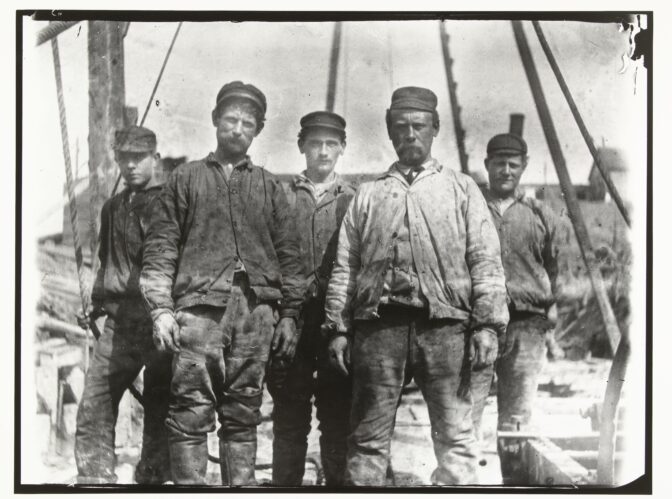A reader asked me what the difference is between the occupations arbeider, werkman, and dagloner.
Arbeider and werkman are synonyms and both mean “laborer.” These are usually people who work for an employer for a longer period of time, typically a year, in return for an annual wage. A dagloner is a day laborer, somebody who does not have a fixed employer but is hired and paid per day. All these occupations perform manual labor, typically unskilled, for an employer.
Laborers were usually somewhat better off than day laborers, since they had employment year-round. Day laborers were more likely to rely on charity during winter, when daily wages were low if work could even be found. Laborer and day laborer are working-class occupations.

Group of laborers in Amsterdam, circa 1890-1910. Credits: G.H. Breitner, collection Rijksmuseum (public domain)


Yvette,
Thanks for the clarification between arbeider, werkman & dagloner. I have a lot of ancestors that are listed as arbeider and its nice to know they had some economic stability in their life.
Matt Newbold
Syracuse, Utah